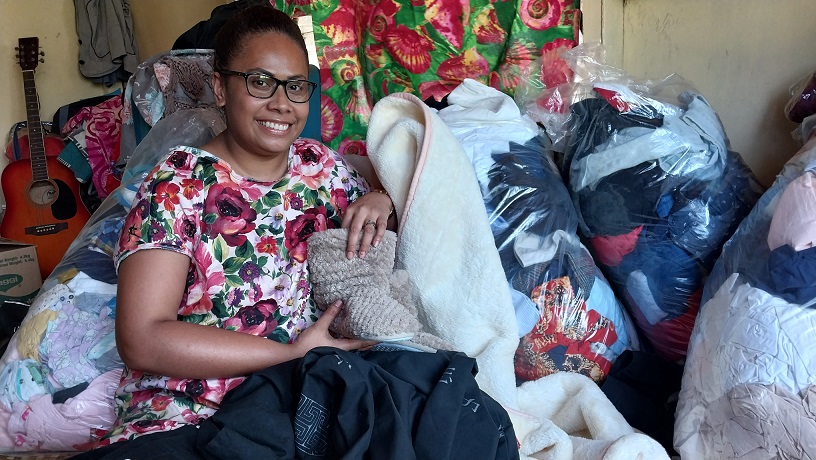Having a stable white collar job offers opportunities to advance to roles as managers or executives, and earn higher salaries.
But all these perks do not mean much to former customer interaction agent, Vasiti Rachel Raiova. All that she wants is to be her own boss.
So it came as no surprise that she left her office job to establish her own cottage business.
Today, she earns a livelihood by selling second hand clothes, cakes and food parcels under the budding EJ Enterprise.
At first, selling was an activity she used to pass time. But now, the 29-year-old has turned that passion into a full time business after she had to move to Lekutu, Bua to look after her father.
In 2018, Rachel resigned from her day job in Suva.
She wanted to do something on her own and her love for second hand clothes led her to the business she manages today.
She orders clothes from thrift shops in the northern town of Labasa on a consignment basis and resells them from home.
“I give them (suppliers) a list of items that I need. These are then dropped off at my home,” she said.
The mother of two said she started her business to give rural people in Bua province ‘customer experience’ of thrift shopping.
Her clientele are mostly her relatives and friends, especially young mothers who live around where she lives.
She operates her business not in a rented space but in her own living room or in the village outdoors with the blessings of fresh air and trees.
“Operating from home gives me an idea of what people are looking for and the latest trends,” she said.
“I believe the 70s fashion is coming back, the era of style was just iconic for a lot of people, and I think it’s coming back as history tends to repeats itself a lot,” she said.
Rachel likes her second-hand clothing business because it allows her to contribute to saving mother earth, through initiatives such as recycling. And with the popularity of social media as a marketing tool, she doesn’t need to spend money on advertising.
“Instagram has become an e-commerce marketplace for people to purchase and resell clothing items. It has quickly risen to become one of the most popular thriving platforms.
“Before the advent of social media and apps, people could only buy used items by visiting their local thrift stores…now apps and social media have made second-hand shopping much more accessible and convenient,” she said.
The success of her used clothing enterprise has allowed the mother of two to venture into the pastry and food business.
“I sell birthday cakes for only $35 and food parcels for $8,” she said.
“I get exhausted at the end of the day but my father, husband and two children keep me going,” she said.
Money earned from her three businesses have helped her to renovate the family house, put food on the table and pay for bills. “I am planning to buy a freehold land here in Bua,” she said.
“This is to set up a cattle farm as we had heard it was good money.”
Her advice to young women is to “build a door when opportunity doesn’t knock at your door”.
“If you have a great idea and unique e-commerce vision then you can start building your own door into business-ownership.
“It’s important for you not to get distracted. Never tell yourself that you need to be the biggest brand in the whole world.
“Start by working on what you need at the present moment and then what you need to do tomorrow. So, set yourself manageable targets and grow.” she said.
- NACANIELI TUILEVUKA is a freelance journalist based in Labasa, Macuata. The views expressed in this article belong to the author and do not necessarily reflect the views of this newspaper.



